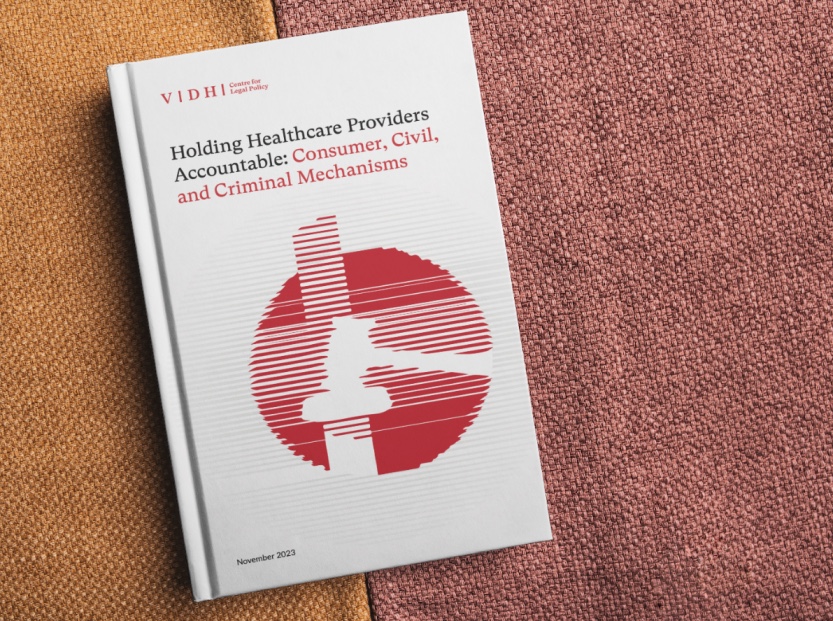
Holding Healthcare Providers Accountable: Consumer, Civil, and Criminal Mechanisms
Background
The legal mechanisms available to hold healthcare providers accountable for misconduct and negligence in India have not been well studied. Academic discussions revolve around the law laid down through cases brought to the High Courts and the Supreme Court of India. Currently, there is limited exploration of the functioning and effectiveness of the fora more frequently accessed by patients, i.e., consumer, criminal, and civil courts. This study aims to address gaps in the literature by analysing the decisions of these fora alongside the substantive law governing these cases. i.e. consumer protection law, criminal law, and the law of torts.
This report analyses and compares trends across three datasets of judgments which deal with medical negligence. The data was sourced as follows: (a) For consumer law cases, data was sourced from the online portal which officially hosts orders passed by consumer courts across the country (‘ConfoNET’); (b) For criminal cases, data was sourced from ‘eCourts’, the official nationwide online database maintained for district-level court proceedings (c) Civil cases from the High Courts and the Supreme Court were obtained through a partnership with a private aggregator of legal information (Manupatra). The data has been analysed on the basis of issues litigated, alleged violations, outcomes, adjudicatory approaches, the rationale applied to determine guilt or liability, remedies awarded, and the time taken to dispose of cases. These findings are interpreted against the backdrop of established jurisprudence and legal literature pertaining to medical negligence.
Key Trends in the Data
- Most consumer cases in the dataset involve issues with the treatment or care provided, with very few being based on infrastructural defects. The majority of the criminal cases were filed under Section 304A of the Indian Penal Code 1860 (death due to negligence). However, a number of cases also included simultaneous allegations of the offences of forgery, cheating, criminal intimidation, conspiracy, and grievous hurt caused due to a negligent act, as well as a few offences under other laws.
- Lower courts tended to decide in favour of healthcare providers in the majority of cases (consumer and criminal), with particularly low conviction rates in criminal cases. Many criminal complaints at the district level were dismissed before commencing trial – primarily on the ground that the prosecution either failed to obtain an expert medical opinion as per guidelines laid down in landmark rulings, or to establish a prima facie case of medical negligence. Unlike in the criminal and consumer datasets, the healthcare provider was held liable in more than half of the dataset of tort cases adjudicated by the High Courts.
- Consumer complaints were most often filed against individual practitioners jointly with the concerned healthcare establishments, while criminal complaints tended to focus on individual practitioners alone. Most consumer and criminal cases were filed against private healthcare providers. Tort cases before High Courts saw an overwhelming proportion of defendants / respondents being government healthcare providers.
- Criminal convictions usually went beyond a prison sentence, and fines / compensation of widely varying amounts were awarded in addition to imprisonment. Consumer commissions awarded an even wider range of compensation under various heads, such as physical or mental suffering, litigation expenses, and loss of love and affection; notably, most of them did not specify the rationale / principle followed when calculating compensation.
Takeaways and Recommendations
When adjudicating cases of medical negligence or other deficiencies of service in the healthcare context, courts often underscore the need for expert opinion or literature that may be relied upon in coming to a decision. These are, however, not always available or adequate for the task. The outcomes of cases, the rationale followed, and the compensation amounts awarded in cases of medical negligence vary widely across cases and even between different states, leading to significant inconsistencies in outcomes for litigants. More careful and consistent consideration and analysis is required in order to determine which cases require expert medical opinion, as well as the onus and process of producing such opinion. Further, the apparent reluctance of courts to convict healthcare providers of medical negligence under criminal law raises questions as to the role of this mechanism as a tool of accountability in the healthcare space, and possibly warrants further research.
In order to address issues of medical negligence and improve accountability in the healthcare space, emphasis needs to shift from judicial intervention to healthcare reform by executive action and by improving regulatory frameworks. Healthcare establishments need to be incentivised to develop accessible and effective internal grievance redressal mechanisms so that patients’ concerns can be resolved in real-time, avoiding long and expensive legal proceedings. The last chapter of this report sets out key recommendations for the strengthening of grievance redressal mechanisms at healthcare establishments, and the reform of criminal and consumer adjudicatory processes for cases of medical negligence, as follows:
- Issuing guidelines to educate consumer fora, district courts, healthcare providers and establishments about developments in the jurisprudence concerning medical negligence.
- Framing rules under the Consumer Protection Act, 2019 to guide the use of expert opinion and the calculation of compensation in such cases.
- Drafting rules to replace the Supreme Court’s guidelines in the landmark judgement in Jacob Mathew v State of Punjab (2005) 6 SCC 1 : MANU/SC/0457/2005 (Jacob Mathew).
- Setting up permanent district medical boards to provide expert opinion in medical negligence cases, as per Jacob Mathew.
- Framing rules under the Clinical Establishments (Registration and Regulation) Act, 2010 and analogous legislations mandating internal grievance redressal systems at all healthcare establishments.








